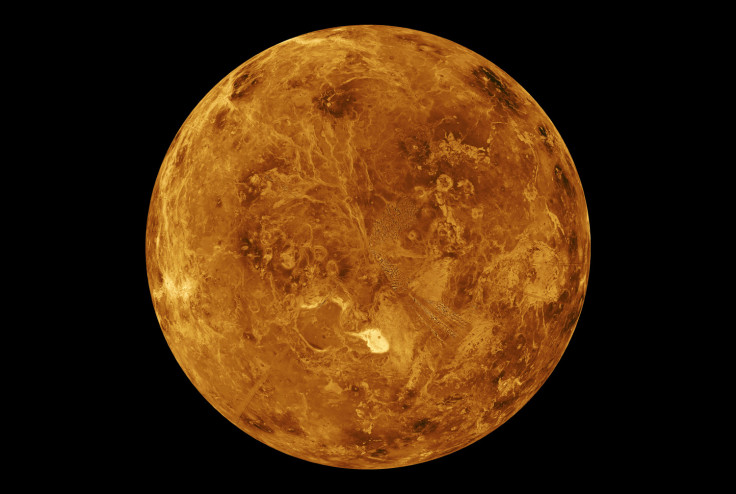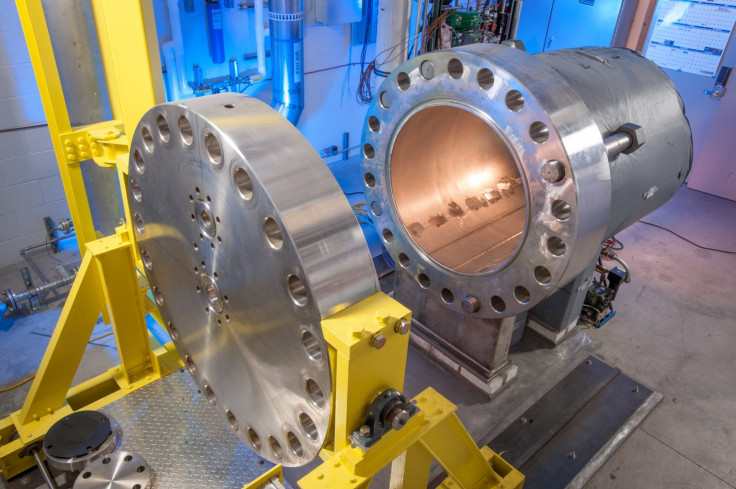Nasa finally develops computer chip that can survive 500°C temperatures on Venus
Nasa trials computer chip that can survive for multiple days and weeks in Venus-like conditions.

Nasa researchers have made a breakthrough in space technology by developing a computer chip that can survive in extreme heat on the planet Venus for multiple weeks without any form of protection or cooling system.
Scientists from Nasa's Glenn Research Center have developed a computer chip that can survive Venus' surface temperatures of up to 470°C (878°F), as well as the 9 MPa atmospheric pressure, which is 90 times higher than on Earth, without a cumbersome system to keep it cool.
As a point of reference, regular silicon computer chips can only cope with temperatures of up to 250°C, and even then the computer will still stop working properly, which is why there is such a big emphasis in the IT industry on computer and data centre cooling systems.
The breakthrough was possible by building the chip out of silicon carbide (SiC) – a new type of ceramic semiconductor material that is able to cope with high voltages and temperatures, as well as making sure that the tiny wires that connect transistors and other components in a circuit (known as "interconnects") are able to survive the extreme conditions too.
The researchers demonstrated that their chip was able to continue to function at 1.26MHz for 521 hours continuously (21.7 days) when placed in the Glenn Extreme Environments Rig (GEER), a machine specially designed to emulate the temperature and pressure on Venus for hundreds of hours at a time.
The paper, entitled: "Prolonged silicon carbide integrated circuit operation in Venus surface atmospheric conditions" is published in the journal AIP Advances.
Venus or Mars, which planet should we colonise?

The human race badly wants to colonise another planet, and currently all hopes are concentrated on Mars because it is the most habitable planet for humans in our solar system.
There are several reasons why the Red Planet would be ideal; its soil contains water that can be extracted; the temperatures are not too cold or too hot; there is an atmosphere to protect us from cosmic and solar radiation; gravity is sufficient for the human body to adapt to; and day to night rhythms are almost identical to Earth.
However, there is one big reason why Mars is unsuitable – it is very far away from Earth, and will take roughly six months to reach, according to Nasa. Venus is much closer to us, but unfortunately its atmospheric conditions are hostile to organisms, even though historically it might have once been habitable.
It would be interesting to gather more research to see whether living on Venus could be possible, but to achieve that, rovers would have to be sent there, like the ones on Mars, which are automated robot vehicles containing multiple sensors that can drive themselves across the planet's surface collecting data for extended periods of time.
We need a Venus rover that lasts longer than 127 minutes
Mars rovers were only intended to last for three months, but the Opportunity rover is still going 12 years after, and its younger sibling Curiosity, launched in 2012, is still plodding along too. In contrast, the longest time that a probe has lasted on Venus is 127 minutes (the Soviet spacecraft Venera 13 in 1981), before it stopped working because the heat and pressure became too much for the probe to bear.
"Past and planned Venus landers have been limited to a few hours of surface operation, even when IC electronics needed for basic lander operation are protected with heavily cumbersome pressure vessels and cooling measures. Here we demonstrate vastly longer (weeks) electrical operation of two silicon carbide (4H-SiC) junction field effect transistor (JFET) ring oscillator ICs tested with chips directly exposed (no cooling and no protective chip packaging) to a high-fidelity physical and chemical reproduction of Venus' surface atmosphere," the researchers write in the paper.
"This represents more than 100-fold extension of demonstrated Venus environment electronics durability. With further technology maturation, such SiC IC electronics could drastically improve Venus lander designs and mission concepts, fundamentally enabling long-duration enhanced missions to the surface of Venus."
© Copyright IBTimes 2025. All rights reserved.




















